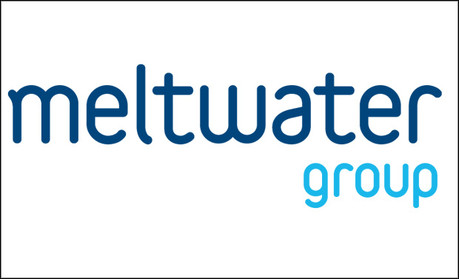
Meltwater responds to Copyright Tribunal decision: 'UK’s copyright law is on a head-on collision with the average internet user'
The Associated Press (AP) has filed a lawsuit against media monitoring service Meltwater News, on the same day as a copyright tribunal ruled on the licensing of online content.
In a release published online today, the AP said the lawsuit was in relation to alleged "copyright infringement", accusing Meltwater of providing a service which "competes directly with AP and its customers".
AP's acting general counsel added in the release that its lawsuit "is not a general attack on news aggregators" and that the US news agency is not trying "to restrict linking or challenge the right to provide headlines and links to AP articles".
In a statement Meltwater said "this is the first we have heard of the AP's concerns and we are surprised".
"From their press release, it appears that the AP misunderstands how our service works in many key respects. It is unfortunate that the AP did not seek to discuss this with us prior to taking this wholly unnecessary step. We invite the AP to enter a dialogue so that we can better understand their concerns and so they can accurately understand how our service works."
The AP's lawsuit filing came on the same day that the Copyright Tribunal in the UK published its conclusions on the case of Meltwater, the Public Relations Consultations Association (PRCA) and the Newspaper Licensing Agency (NLA).
The dispute between Meltwater and the NLA, which was heard by the tribunal in September, relates to the use of online newspaper content.
In 2009 the NLA introduced a scheme to license media monitoring organisations such as Meltwater, and the use of newspaper websites by granting a web database license (WDL).
The next year the NLA introduced a further scheme for licensing the use of this content by the end user, such as PR consultants in the case of Meltwater, via a web end user licence (WEUL).
As described in today's interim decision, "Meltwater’s position was that it was prepared to enter into the WDL and undertook to do so" but it "did not agree that its customers needed to enter into the WEUL at all".
The Copyright Tribunal found today that "there is no logical distinction between the headline-only service and the headline plus text extract service" and as such end users of both should "enter into the WEUL" and "be subject to the same tariff rates".
"Accordingly our decision in relation to Meltwater’s headline-only service is that we reject the argument that requiring end user licensing under the WEUL, and at the same rates as the WEUL, is unreasonable. If Meltwater want to offer a headline-only service to their end users they are free to do so but the service must be licensed in the same way as the headline plus text extract service."
But Meltwater said the decision went in its favour, with the tribunal also finding the "level of future fixed fees proposed by the NLA" to be "much too high".
In a statement NLA's managing director David Pugh said the agency also welcomes the decision.
"We are pleased that the Copyright Tribunal has upheld the principle and structure of our online licensing scheme, and confirmed that Meltwater is subject to the same requirements as Media Monitoring Organisations".
"The judgment provides a measured, equitable regime that will ensure stability for both publishers and end-users alike: our customers will benefit from a transparent licensing structure and newspapers can be sure of a fair reward for their content.
"We think that all concerned will welcome the certainty that the Tribunal has provided, and we look forward to working with the newspapers, MMOs and our customers to implement the licence as quickly and as smoothly as possible."
In the decision ruling today, the tribunal added that the NLA also "intends to seek to require licences from commercial end users of Google Alerts who forward on the emails received within their businesses".
Meltwater also issued a statement, claiming that the ruling "makes it clear that the UK’s copyright law is on a head-on collision with the average internet user", adding that the "verdict is only a partial victory for the UK internet community".
"Going forward, it is clear that UK clients of online news monitoring services will need a license agreement with the NLA and pay copyright fees. This is also the case for commercial UK clients of any news monitoring vendor including Google News. During the proceedings, the NLA stated that it has been mandated by its owners and intends to pursue licensing of UK business users of Google News."
The NLA had already taken Meltwater and the PRCA to the High Court, winning a judgement that web links for online news were protected by copyright law.
The PRCA and Meltwater had referred the case to the court of appeal where it was agreed that end users would also require a licence from the NLA or publisher. However, it was added that there may be cases where neither the headline or "scrapings" of online news would signify a copyright work.
The company added today that along with the PRCA it is still due to appeal parts of last year's court of appeal decision to the Supreme Court next year.
Free daily newsletter
If you like our news and feature articles, you can sign up to receive our free daily (Mon-Fri) email newsletter (mobile friendly).
Related articles
- News subscriptions hit a snag amid cost-of-living crisis, RISJ report finds
- Average revenues up by 20 per cent for UK independent news publishers
- Headlines Network releases guide for covering traumatic breaking news
- Avery Anapol, commissioning editor at The Conversation, on engaging younger audiences with academic content
- Information literacy courses can help students tackle confirmation bias and misinformation









